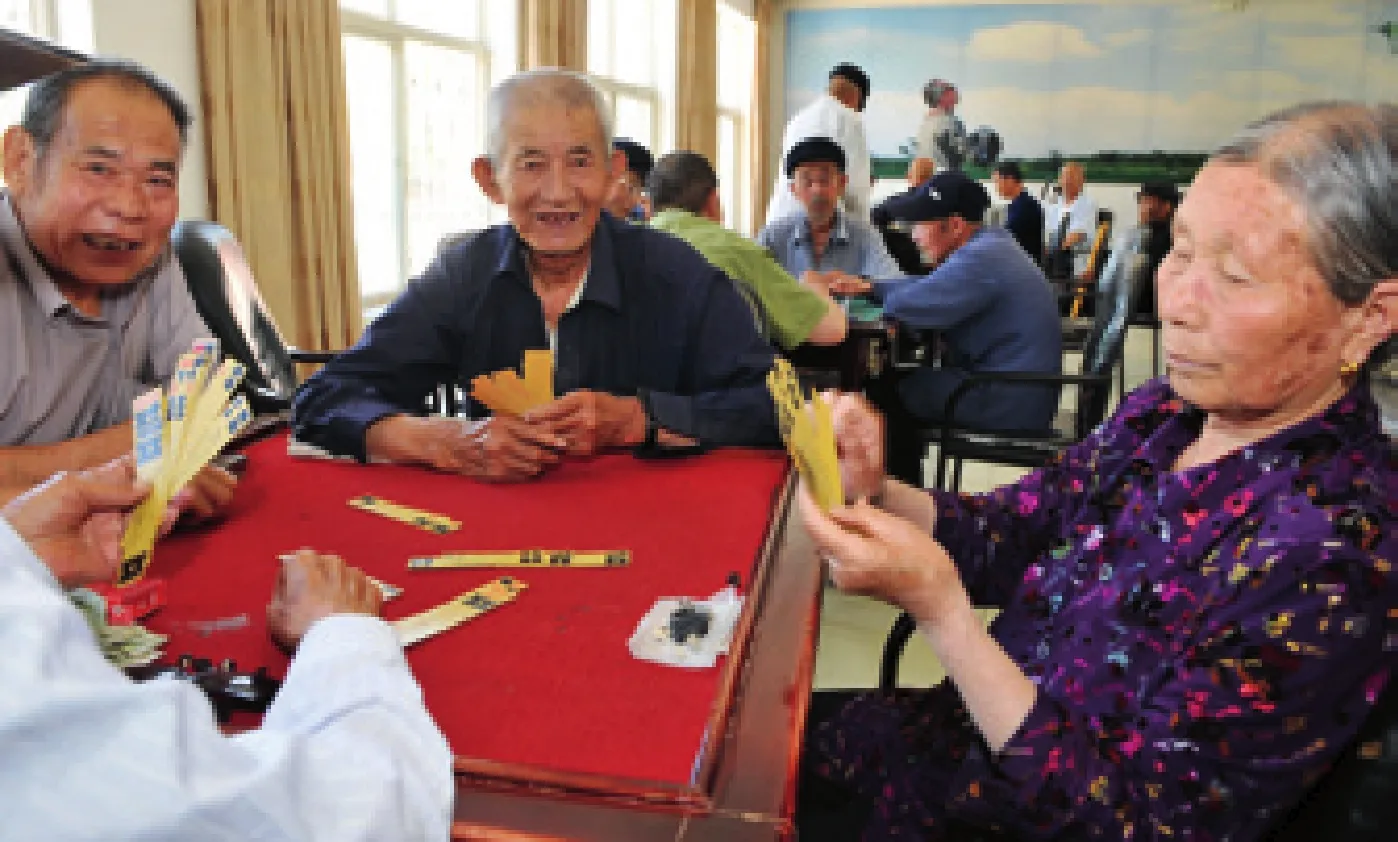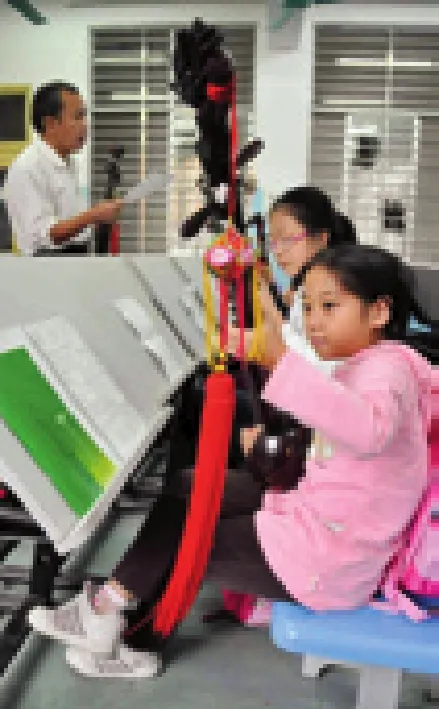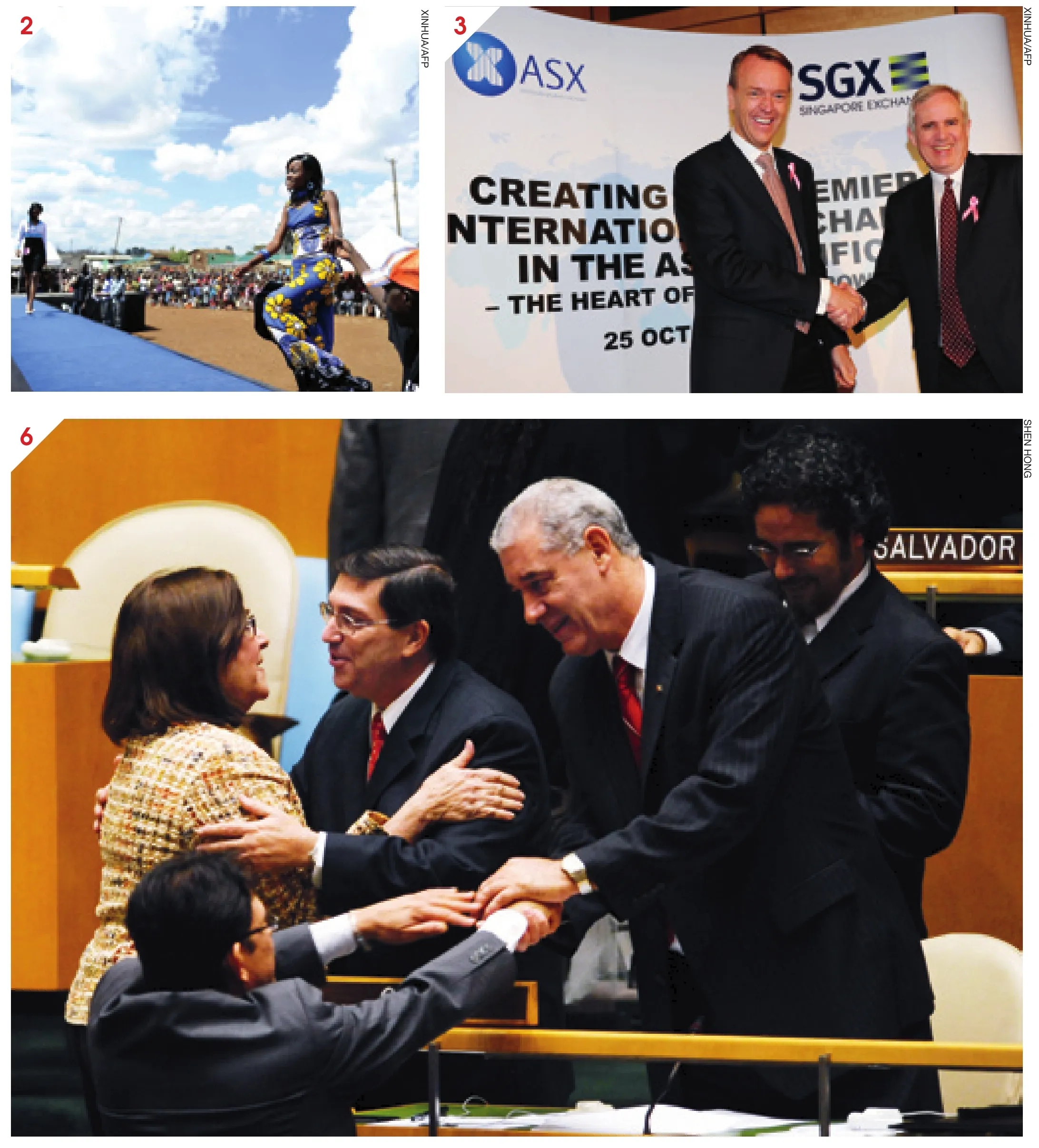WEEKLY WATCH
2010-10-14
WEEKLY WATCH
OPINION
Interference in Need
In face of a new home-buying frenzy,officials and experts have called for rational housing consumption, which implies renting. Recently, Qin Hong, Deputy Director of the Policy Research Center of the M inistry of Housing and Urban-Rural Development,said China needed to learn from foreign experience to regulate the housing rental market.
But opponents say the rental market is also operating in accordance w ith market rules, so rigid regulation and rent controls are unnecessary.
Qin said the rental market should be regulated w ith explicit laws and regulations not only because China’s rental market is among the most unregulated in the world, but also because proper interference is a common practice in the rest of the world. Germany is a typical example.
Several months ago, home sales dropped sharply, and rentals began to rise unexpectedly. In some big cities, rents have risen by 20 percent. Real estate agents are partly to blame, but it has also been caused by recent housing market regulatory policies.No matter what has driven up rents, if there were effective laws to regulate this market,this sort of volatility would be unlikely to happen. Besides, if low-rent public houses were in sufficient supply to meet tenants’demands, private home rentals would be unable to rise so recklessly.
Youth Times
Lessons to Be Learnt
The Yuhang District of Hangzhou in Zhejiang Province recently said it was buying back 28 township health centers, which were privatized several years ago, for 300 million yuan ($45 million). The 29 township health centers in Yuhang were sold for 75 million yuan ($11.25 million) in total. The Health Department of Zhejiang Province says it hopes these purchases w ill help to w in back the public’s confidence in grassroots medical institutions.
The Yuhang District Government sold these medical institutions because they were losing huge amounts of money. Problems immediately followed the privatizations.To maximize profi ts, private investors were reluctant to invest in upgrading medical equipment and facilities and they employed many temporary medical workers. Medical accidents frequently occurred and public dissatisfaction grew.
It’s not that market forces shouldn’t operate in the public service area, but the government must realize the existence of grassroots health centers is meant to ensure basic medical services for the public, not profi t-making.
Xinhua Daily Telegraph
Responsibility fo r Elders
As China enters an ageing society, greater numbers of senior citizens are considering retirement homes to spend their sunset years.A recent report on national broadcaster CCTV said applicants had to wait up to two years to check into a 500-bed retirement home in Beijing.
At the end of 2009, China had 167 m illion senior citizens above 60 years old, of whom 18.99 m illion were over 80 and 28.34 million needed nursing care. But there were only 2.66 million beds in 38,060 retirement homes across the country at the end of 2009.Authorities estimate there is a gap of at least 3 million beds between supply and demand.The situation could be aggravated as the proportion of senior citizens to the total population grows even larger.
Whether senior citizens can get the care they deserve is not only an issue of personal dignity but also an issue of social justice.
Due to China’s fam ily planning policy,sometimes a single coup le is burdened w ith the chore of taking care of four elderly parents. Therefore, the government must undertake its responsibilities in guaranteeing life quality for the elderly. What the government needs to do is to provide money for public elderly homes for more beds, offer incentives to private institutions and provide good services needed by senior citizens who choose to live at home.
Dazhong Daily
Brazen Pro fits

GOLDEN YEARS: Residents o f a retirem ent hom e in Ningxia Hui Autonom ous Reg ion. How to p rovide qua lity se rvices fo r the huge num ber o f elderly peop le is an u rgen t cha llenge to governm en ts at various levels in com ing years
Zhao lin Junio r M idd le Schoo l in Heilongjiang Province is public funded. But during the past 14 years, it has been operating as a private school w ith government support, and charging much higher tuition fees than public schools should do.
What drives this school to arbitrary fee charges year after year? There are at least two major reasons. At its founding, due to government backing, a large number of excellent teachers were transferred to it from other public schools, so its teaching quality is much better than most other schools.Besides, 20 percent of its graduates have direct access to a provincial-level key senior m iddle school w ithout exam inations. So, despite the high fees, parents are eager to send their children to this school.
The school signed a contract w ith the local government several years ago agreeing 30 percent of its tuition charges would be subm itted to the government. Some parents even said the school was almost the government’s cash cow. A regulation issued by the M inistry of Education and six other m inistries says during the compulsory education period, students should be adm itted by schools in their home areas and schools are not allowed to charge for adm issions. But Zhaolin School has made this free process into a money-making tool and it is also helping students to buy into key senior middle schools. It is not only violating relevant state policies, but also making the distribution of educational resources even more unfair.
Beijing Times
SOCIETY
Super Bug
China’s health authorities announced the country’s first three cases of NDM-1,a multi-drug resistant super bacterium, on October 26.
The Chinese Center for Disease Control and Prevention (CDC) official Ni Daxin said at a press conference that two cases were detected from samples subm itted by the local CDC in the northwestern Ningxia Hui Autonomous Region and one from southeastern Fujian Province.
The samples from Ningxia were drawn from feces of two infants born on March 8 and March 11. Both were born underweight and showed symptoms of diarrhea and respiratory infections two days after birth. One suffered an oxygen deficiency.
One of the babies recovered after nine days in hospital and the other after 14 days.They remained healthy, said Ni.
Although the two babies were diagnosed as carrying the NDM-1 bacteria, there was no link between the bacteria and their illnesses.
The other sample from Fujian was from an 83-year-old, who died on June 11. Ni said the primary cause of death was late-term lung cancer, and the role of the drug-resistant bacteria in the development of the illness was unclear.
Space Am bition
China has formally begun its manned space station program, aiming to complete construction of a “relatively large” manned space laboratory around 2020, said a spokesman for the national manned space program on October 27.
China was aiming to develop and launch the first part of a space laboratory before 2016, focusing on breakthroughs in living conditions for astronauts and research applications, the spokesman said.
The country w ill develop and launch a core cabin and a second laboratory module around 2020, which w ill be assembled in orbit.
Food Inspection
China’s food safety authorities have started a nationw ide campaign to supervise local governments in tackling problems such as “gutter oil” and problematic milk powder.
The State Council’s Food Safety Comm ission said on October 26 that local governments had made progress since they launched the campaign last year and a new inspection would assess whether their work was “effective.”
The campaign w ill reinforce local government efforts in rectifying the country’s m ilk powder industry, which was scarred by a melam ine-tainted m ilk scandal in 2008 that caused at least six infant deaths and sickened 300,000.
In July, the State Council ordered food safety authorities to eradicate “gutter oil,”usually made from discarded kitchen waste that has been refined, after media reports that it was commonly used by small restaurants.
Expo Go ld
The Shanghai Expo w ill generate more than 80 billion yuan ($11.9 billion) in tourism revenues for Shanghai and neighboring Yangtze River cities, the China Tourism Academy (CTA) estimated on October 26.
Expo-related tourism should lead to a 20-percent increase year on year in aviation,foreign trade, retail sectors, and accommodation and catering in Shanghai and neighboring cities, said a CTA official.
The Shanghai Expo had met the goal of receiving 70 m illion visitors, including 3.5 m illion from overseas, Shao Qiwei, head of China’s National Tourism Adm inistration,said.
The total attendance at the 184-day fair in Shanghai broke the record held by 1970 Osaka World Expo in Japan, which attracted 64 m illion visitors, data from the Expo Bureau showed.

CHEERLEADING BEARS Six pandas from Bifengxia Panda Base in Ya’an,sou thw est China’s Sichuan Province, leave their hom e on Oc tober 27 for Guangzhou to m eet w ith visitors during the 16th Asian Gam es

PASSING DOWN TRADITIONS Students o f a p rim ary schoo l in Nanning, Guangxi Zhuang Au tonom ous Region,learn how to p lay Tianq in, a 1,000-year-o ld m usica l instrum en t invented by Zhuang ethnic g roup, in c lass on Oc tober 27

BUMPER HARVEST On Oc tober 27,a w om an carries new ly harvested chrysanthem um s in Xiuning County, Anhui Province, w hich p roduces the best ch rysan them um tea in China
ECONOMY
Im port Rules Relaxed
China w ill stream line its import payment verification systems starting December 1 this year.
Enterprises w ill no longer have to be present for import payment verification if they are undertaking “regular business,”said the State Adm inistration of Foreign Exchange (SAFE).
SAFE w ill hand le im port payment verification and share the information so enterprises w ill not have to complete verification preparation procedures at SAFE facilities.
The reforms are meant to boost foreign trade and simplify enterprises’ import payment procedures while cutting their costs.
Rising Service Trade
Estimates show that China’s service trade w ill hit $300 billion this year, up 20 percent from last year, said Wang Huiying,a senior official of Department of Trade in Services of the M inistry of Commerce.
China’s service trade value reached$286.8 billion in 2009, ranking fifth in the world, Wang said.
During the fi rst half of this year, China’s service trade deficit fell by $5.05 billion year on year to $11.69 billion, and the yearon-year grow th rate in exports was 16.7 percentage points higher than imports, Wang said.
PetroChina Pro fit Up
The net profits of PetroChina Co. Ltd.(PetroChina), the country’s largest oil and gas producer, surged 23 percent year on year in the fi rst nine months of 2010.
Net profit totaled 100.03 billion yuan($14.93 billion) and earnings per share stood at 0.55 yuan ($0.082) in the fi rst nine months, said the company’s statement to the Shanghai and Hong Kong stock exchanges.

INTENSE WORK Wo rkers take part in construc tion efforts at the Dong jiang bonded area o f Binhai New Area in Tian jin M unic ipa lity.To date, it is the biggest bonded area app roved by the governm ent
The company attributed the increase mainly to the price surge in crude oil during that period.
The company’s oil output rose 1.3 percent year on year to 640 million barrels in the fi rst nine months, while 1.68 trillion cubic feet of natural gas was produced.
App le in China
U.S. computer giant Apple Inc. launched its official online store in China on October 27 to curb the “gray” market and expand its business to domestic consumers.
The online store offers a w ide range of Apple products, including the iPad and new ly launched iPhone 4.
The store is part of Apple’s aggressive Chinese expansion strategy. The company,currently having four stores in China, announced early this year that it w ill open 25 Apple stores in the country by the end of 2011.
The new store w ill accept online payments from 22 Chinese banks, in addition to a popular third-party online payment tool,Alipay.
eMEX Forum
The 2010 Electronic M anufacturing Exposition China Forum (eMEX Forum)—the ninth eMEX forum—was held from October 21-24 this year in Suzhou, Jiangsu Province.
The exposition, featuring green production, Internet application, high-end products and digital and social networking attracted 650 IT manufacturing com panies from the United States, Germany, South Korea,Japan and China. It was jointly held by the M inistry of Commerce, M inistry of Industry and Information Technology, Taiwan Affairs Office of the State Council, and the Jiangsu Provincial Government.
Suzhou is one of the most important bases of China’s IT industry—its output accounts for 15 percent of the nation’s total.

1. FRANCE Studen ts ou tside the Sena te in Paris p ro test the governm ent’s pension re fo rm on Oc tober 26. The re fo rm w ill raise the retirem ent age from 60 to 62 and the fu ll pension age from 65 to 67
2. KENYA Girls o f the Ko rogocho slum in Nairobi take to the catw a lk during a talent show on Oc tober 23
3. AUSTRALIA Singapo re Exchange CEO M agnus Bocker (le ft)shakes hands w ith Robe rt Elstone, CEO o f the Austra lian Secu rities Exchange, in Sydney on Oc tobe r 25. The tw o stock exchanges announced a m e rger,c rea ting the second largest Asia-Pac ific trad ing hub


4. INDONESIA A sta ffe r checks rescue kits in Padang,cap ital o f West Sum atra Province, on Oc tobe r 27. Tw o days earlier, a powerfu l earthquake caused a tsunam i,w hich hit the p rovince’s Men taw ai Islands and killed hund reds o f peop le
5. BAHRAIN An e lderly m an arrives at a po lling station near the cap ita l c ity Manam a on Oc tober 23. That day, Bahrain he ld its third leg islative e lec tion since King Ham ad reinstated the Gu lf kingdom’s parliam en ta ry system in 2002
6. UN Cuban Fo reign M inister Bruno Eduardo Rod riguez Parrilla (second le ft) is cong ratu lated a fter the UN Genera l Assem b ly adop ted a reso lu tion ca lling on the United States to end its decadeslong trade em bargo against Cuba at the UN headquarte rs in New Yo rk on Oc tober 26
